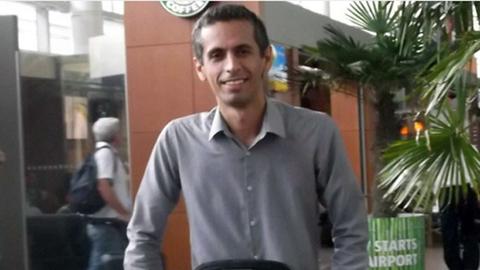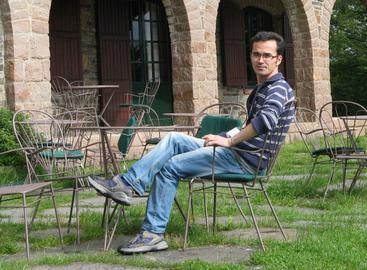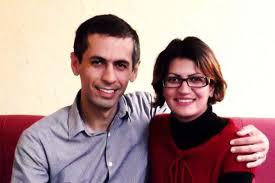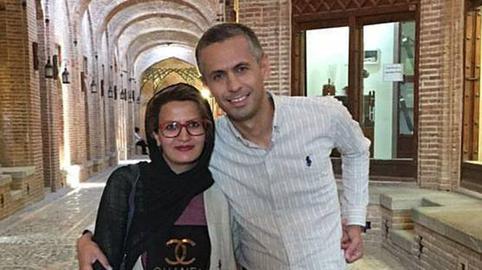There is an edict based on Islamic jurisprudence that says spying on infidels is condoned, and can even result in the spy being rewarded for his or her efforts. Over the years, this edict has been reiterated by various religious officials to justify certain judicial decisions.
“For the Muslims, spying against the infidel is allowed and, according the assertion of some, the spy gets a share of the spoils” [Persian link], a translation of the edict reads.
The edict, based on the tradition of Islamic jurisprudence or the “Sunna,” not only allows a Muslim to spy on the enemy, it encourages him to do so by promising him a share in the plunders of war even though he has not been directly engaged in the fight. Although this and other edicts of the Sunna are not part of the Koran — they are based on the words and deeds of the Prophet Mohammad — they can hold as much authority as the Koran. However, they are also open to interpretation. In relatively recent times, this view has been repeated by, among others, Ayatollah Hossein Ali Montazeri, the one-time designated successor to Ayatollah Ruhollah Khomeini. In his book The Jurisprudential Foundations of the Islamic Government, he stated that it was not only a choice that is “allowed,” but a necessity [Persian link]. And this “necessity” was later confirmed by Khomeini himself who said: “Spying to protect Islam and the Muslim people is a religious duty” [Persian link]. And, he added, if a particular act is a religious duty, then dereliction of this duty is subject to punishment.
For many years now, security and intelligence agencies of the Islamic Republic have been responsible for identifying dereliction in this regard. Those found guilty of refusing to spy, including a number of Iranians with dual nationalities or Iranians who reside in foreign countries, have received heavy punishments.
Hamid Babaei, a PhD finance student at the University of Liege in Belgium and a member of the university’s research team, returned to Iran in the summer of 2013. Little did he know that the Islamic Republic would demand that he become a spy.
“Hamid had no illusions about himself,” a relative of Babaei told IranWire. “He was never into politics and political activities but he had principles that he would not violate under any conditions and he is now in prison for staying true to those principles.” Alain Müller, his professor at the University of Liege, makes the same point. “I can say with confidence that Hamid was not a political activist,” he says. “Of course, he had his views about what happens in Iran but I never saw him taking any political action.”
In July 2013, 17 days after his return to Iran, Babaei was summoned to an Intelligence Ministry office in Tehran’s Abuzar Street. He was asked to cooperate with the ministry and spy on Iranian students in Belgium, but he refused. Then, a few days later as he was about to board a plane to return to Belgium, he was told that he had been banned from leaving Iran. He was again summoned by the Intelligence Ministry and the offer of spying was repeated — as was his refusal to do so. He was arrested immediately, transferred to Ward 204 of Evin Prison and spent 20 days in solitary confinement.
10 Years for Not Spying
On December 21, 2013, in a trial that lasted less than 10 minutes, the notorious Judge Abolghasem Salavati of Branch 15 of the Revolutionary Court sentenced him to six years in prison and to four years’ suspended imprisonment on the charge of “cooperation with a hostile government.” According to Babaei’s wife Kobra Parsajou, he was denied the right to have his own lawyer and was not informed that the court had chosen a lawyer for him without consulting him. Throughout the short trial, the lawyer was silent and Babaei was not allowed to speak in his own defense.
According to one of his relatives, it was later revealed that Hamid Babaei had been sentenced to prison not for cooperating with a hostile government but for not cooperating with the Intelligence Ministry by agreeing to spy on Iranian students in Belgium. “Hamid’s arrest put the whole family in shock,” the relative said. “We could not find any justification for it. We could not find any justification in his area of work, in his field of studies, in the country where he lived or in his past and his relationships.”
The actual reason began to emerge when the Intelligence Ministry summoned his wife more than once, and was eventually indicted. Parsajou was later put on trial, sentenced to six months of suspended imprisonment and was banned from leaving the country. According to the relative, she was told to keep silent about her husband. “Otherwise, she would face new charges and her suspended prison sentence would be carried out.”
On August 7, 2019, Hamid Babaei was released from prison after six years.
A Growing Trend
But Hamid Babaei was not the first person to make the news by being punished for refusing to spy for the Intelligence Ministry. He was preceded, among others, by Omid Kokabee, a Ph.D. student of nuclear physics at the University of Texas at Austin. He was arrested on January 30, 2011 while trying to board a flight to the United States after visiting his family.
In a letter from prison, Omid Kokabee wrote to a friend that on the morning of the day when he was arrested, he had been invited to the Iranian Atomic Energy Agency and had been asked to cooperate with them but he had rejected the offer, as he had done on previous occasions. He was tried by the Revolutionary Court and the same judge, Abolghasem Salavati, sentenced him to 10 years in prison for “connections with, and spying for, a hostile government.”
Iran’s Islamic Penal Code does not specifically define “hostile government,” and, in response to inquiries, the Iranian Foreign Ministry has always maintained that Iran is not engaged in “hostilities” with any government.
Kokabee has never explicitly referred to nuclear “spying” for Iran in any of his correspondence or other communications, but the words he has used leave no doubt that he had been asked not only to work on Iran’s nuclear weapons program but also to do his “duty” and conduct nuclear espionage in the US.
“Why are you Doing this?”
“This 10-year sentence...is the punishment of somebody who, because of his convictions, did not accept...to work within the security and military establishment,” he wrote in a letter to a friend during his second year in prison. He essentially repeated the same point in a letter to Sadegh Amoli Larijani, the former Chief Justice of Iran. In his letter, Kokabee pointed to the promises made to him and his family to force him to work with the “Highest Security Department” in the country. He wrote: “I have done no wrong and do not have any information about security issues and secret activities by the regime, [so why] are they treating me in this way and [why] has my life and my family been taken hostage? In the future, if I accept to cooperate and because of the job, I gain information and these secrets, how will they treat me then?”
In 2013, Kokabee’s mother Safar Bibi Haghnazari said in an interview: “In addition to the propositions that Omid had received from 2005 to the day before his arrest, they talked to him again specifically in the period between the end of his interrogation and the building of a case and before his first court appearance in October 2011 (eight months after his arrest) ... In the course of three stages of talks with him, they promised to close his case and not take him to court if he cooperated. But Omid did not give in.”
In August 2016, after serving five years of his sentence and after he was diagnosed with kidney cancer, Omid Kokabee was released conditionally, but has been forced to stay in Iran. While Kokabee’s lawyer stated on August 29, 2016 that he had been granted freedom on parole, the judiciary could revoke the parole, forcing Kokabee to be brought back to prison to serve the remaining years of his sentence.
In recent years many dual nationals who have been arrested in Iran have received similar offers to “cooperate.” Many analysts of Iranian affairs believe that the experience of the last 15 years at least shows that the Islamic Republic uses arrested dual nationals as hostages to make demands from other countries, offering to release the prisoners in exchange for what it wants. However, the practice has also been extended to Iranians who are not dual nationals but are simply living in a western country. What is more, a new element has been added in the last few years that goes beyond hostage-taking — the insistence that these people should spy for the regime because it is their religious duty. If you refuse, the message goes, you will be punished harshly.
Related Coverage:
Spy for Us or Else: Nazanin Zaghari-Ratcliffe, May 20, 2019
Spy for Us or Else: Aras Amiri, May 17, 2019
Omid Kokabee Marks Birthday in Jail, August 20, 2015
Spy for Us or Else: Ahmad Reza Jalali, May 21, 2019
visit the accountability section
In this section of Iran Wire, you can contact the officials and launch your campaign for various problems





























comments